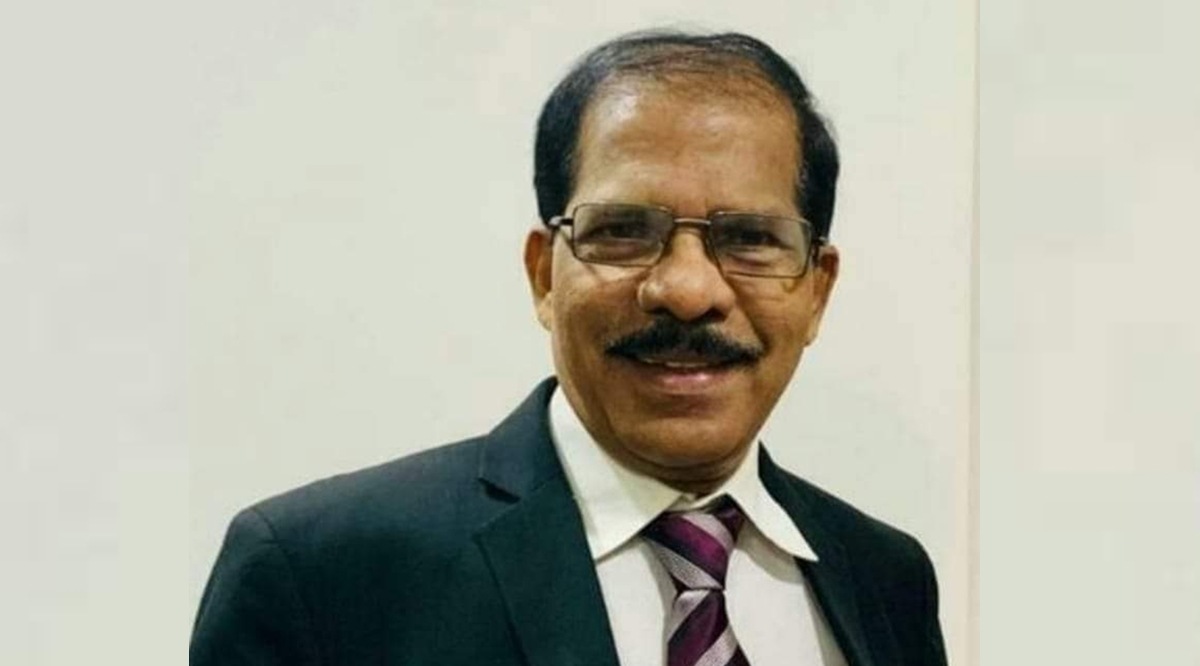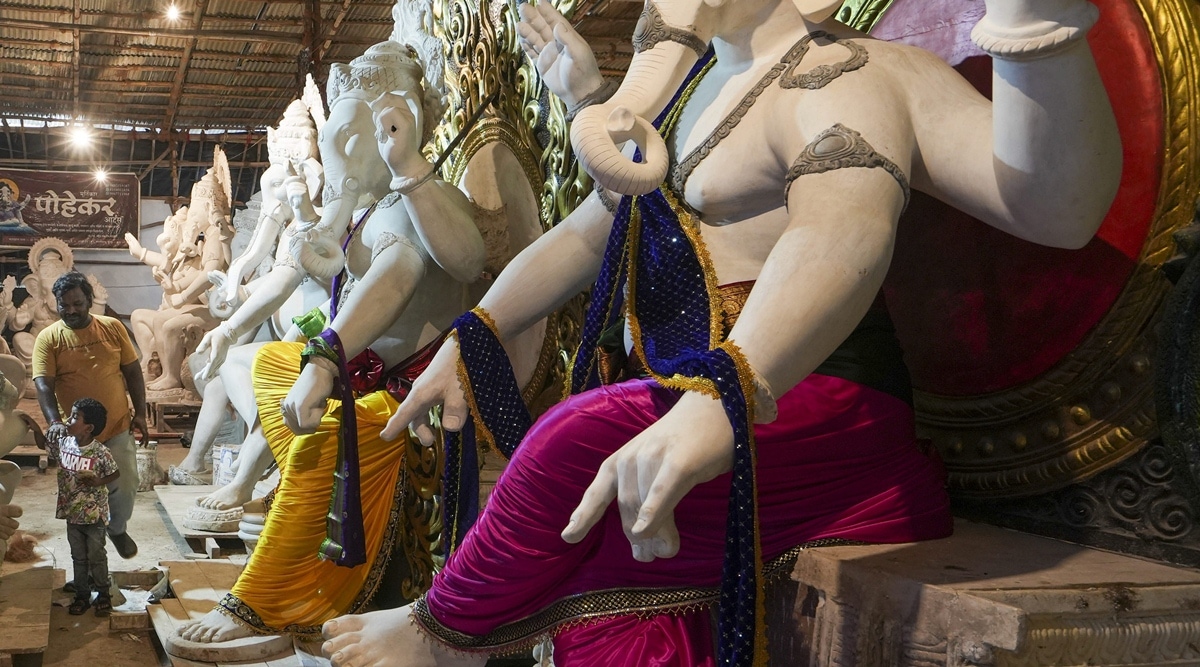When the Brihanmumbai Sarvajanik Ganeshotsav Samanvay Samiti (BSGSS) was established in 1982, the city was home to 1,800 Sarvajanik (public) Ganpati mandals. Today, the number of sarvajanik mandals in Mumbai has surpassed 12,000.
This year, Ganesh Chaturthi festivities will begin from September 19 and the online application process will commence on August 1. Naresh Dahibavkar, president of the BSGSS, the body representing the Sarvajanik Ganpati mandals of Mumbai, tells Nayonika Bose about the debate surrounding Plaster of Paris (PoP) and their many demands from the BMC.

In May, the Brihanmumbai Municipal Corporation (BMC) issued a notice mandating the use of environment-friendly Ganesh idols at every household. What is its current status?
The BMC had issued a ban on the on use of PoP idols for small household idols as well as idols under four feet. Their guidelines instructed us to use Shadu clay, saying that they would provide the same. However, the BMC has not made it available. In the legislative council last week, the Maharashtra government clarified that no ban has been imposed on the use of PoP for small Ganesh idols. However, the government has prohibited the immersion of idols in natural water bodies.
 Idols of Lord Ganesh are being readied at a workshop ahead of the Ganesh Chaturthi festival, in Mumbai, Sunday. PTI
Idols of Lord Ganesh are being readied at a workshop ahead of the Ganesh Chaturthi festival, in Mumbai, Sunday. PTI
Each year, there is a lot of debate about the use of PoP. What do the idol makers think of Shadu clay, which the BMC insists on using instead?
The Samiti is not against the environment. However, some guidelines of the Central Pollution Control Board (CPCB) about Plaster of Paris (PoP) are not feasible for Mumbai’s Ganpati Mandals.
This Shadu is largely available in Gujarat and Rajasthan. It raises the question whether the supply will be enough for Mumbai’s demands, where Ganpati idols are being made for not only the 12,000 Sarvajanik mandals but also 2,50,000 households… The administration needs to think about these aspects, too. Also, not every worker can make idols using Shadu clay.
Story continues below this ad
While PoP has been identified as harmful for the environment, it is essential to identify the exact pollutant in PoP that is causing the damage. A committee of scientists was set up last year and again this year, to identify this polluting element. Once identified, we can extract the harmful pollutant out of it and make idols.
The online application process for Ganpati pandals is slated to commence on August 1. The BMC has also asked for the submission of a deposit of Rs 1,000. However, many mandals have expressed concerns. Why?
While the BMC always collects a minimal fee from the Mandals, starting this year, the BMC has asked us to deposit Rs 1,000. However, we received letters from several mandals objecting to this demand. The BMC tells us that they are doing this to understand how many Mandals have been registered but it is difficult for the smaller mandals to shell out such an amount. If they are demanding Rs 1,000 this year, the amount could keep increasing each year.
This is a religious festivity, not a commercial one. Imposing such high charges in the name of deposits is incorrect. Last Wednesday, we raised these concerns at a meeting convened by the BMC.
Story continues below this ad
What are some of your other demands for the civic body?
Among the several demands that we have put before the civic body, our biggest concern pertains to potholes in Mumbai. We have demanded the BMC to fill the potholes before August 12. Besides causing daily hassles to commuters, potholes can cause a lot of problems during immersion processions. If these potholes are not filled before the festivals, the trolley on which the idols are carried can hit a pothole, damaging the idols. Also, potholes would slow down vehicles carrying big idols, triggering traffic blocks.
The number of Sarvajanik festivities has risen over the years. What are some trends that you have observed?
In the Covid years, the number of Sarvajanik (public) mandals was around 10,500. The number rose to 12,000 in 2022. We have observed that the rise of Sarvajanik celebrations is happening in the suburbs. Of the 12,000 mandals in Mumbai, only 30 per cent are situated in the island city.
Story continues below this ad
An increasing number of Sarvajanik pujas are being organised by residential buildings and its society members. We are expecting the number of mandals to increase again this year.



 Idols of Lord Ganesh are being readied at a workshop ahead of the Ganesh Chaturthi festival, in Mumbai, Sunday. PTI
Idols of Lord Ganesh are being readied at a workshop ahead of the Ganesh Chaturthi festival, in Mumbai, Sunday. PTI





